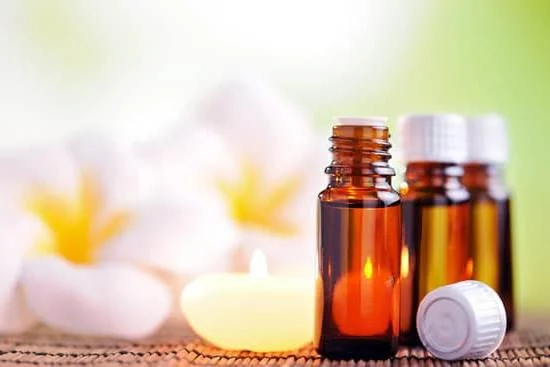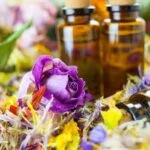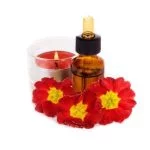How does aromatherapy help with stress? Aromatherapy is a holistic healing treatment that uses natural plant extracts, also known as essential oils, to promote physical and emotional well-being. This practice has been used for thousands of years to relax the mind, soothe the body, and alleviate stress. In this article, we will delve into the world of aromatherapy and explore how it can be an effective tool for managing stress in our modern lives.
In today’s fast-paced world, stress has become an increasingly prevalent issue. It affects people from all walks of life and can have detrimental effects on both our mental and physical health. From demanding work schedules to personal responsibilities, stressors are all around us. But what if there was a way to naturally combat stress and restore balance to our lives?
Aromatherapy offers a promising solution. The power of scents has long been recognized for its ability to evoke emotions and memories. Certain aromas have been found to have calming properties that can help reduce anxiety, relieve tension, and induce a sense of relaxation. But how exactly does aromatherapy achieve these effects? And which essential oils are most effective in promoting stress relief? These questions will be explored in further detail throughout this article.
By understanding the science behind aromatherapy and exploring different methods of application such as inhalation through diffusers or massages with essential oil blends, we can harness the power of scents to create a calming atmosphere that promotes relaxation and reduces stress levels. Additionally, we will also address important safety precautions when using aromatherapy, ensuring that this practice is both enjoyable and beneficial.
So, if you’re seeking natural ways to manage stress and improve your overall well-being, join us on this aromatic journey as we dive into the world of aromatherapy and discover how it can help bring peace and serenity into your life.
Understanding Stress
Stress is a common experience that affects people in different ways. It can be caused by various factors such as work pressure, relationship problems, financial worries, or even just the demands of everyday life. Understanding stress and how it affects us is essential in finding effective methods to cope with it.
Stress is a natural response to challenging or threatening situations. When faced with stressors, our bodies release stress hormones such as cortisol and adrenaline, which trigger the “fight or flight” response. This response prepares us to take immediate action to protect ourselves.
While acute stress can be helpful in certain situations, chronic stress can have detrimental effects on our physical and mental well-being. Prolonged exposure to stress hormones can result in a range of symptoms such as headaches, fatigue, irritability, difficulty concentrating, and even depression or anxiety disorders.
Aromatherapy has been recognized as an effective method for managing stress because it helps activate the body’s relaxation response. The olfactory system, responsible for our sense of smell, is directly connected to the brain’s limbic system, which controls emotions and memory. When we inhale specific scents through aromatherapy, they stimulate the limbic system and promote feelings of calmness and relaxation.
To better understand how aromatherapy works for stress relief, research has focused on investigating its impact on brain waves. Studies have shown that certain essential oils used in aromatherapy have calming effects on brain activity by reducing alpha wave activity associated with being awake but relaxed. Instead, they increase theta wave patterns linked to deep relaxation and meditation.
Exploring the Science Behind Aromatherapy
Aromatherapy has been used for centuries as a natural remedy to promote wellness and relaxation. While many people swear by its effectiveness, you may be wondering how exactly aromatherapy works to help with stress. In this section, we will explore the science behind aromatherapy and its therapeutic effects on the mind and body.
One of the key ways that aromatherapy works is through the inhalation of essential oils. When inhaled, the molecules of essential oils stimulate olfactory receptors in the nose. These receptors send signals to the limbic system, which is responsible for emotions and memory in our brain. This direct connection between smell and emotions is what makes aromatherapy so powerful in promoting relaxation and reducing stress.
Additionally, essential oils have chemical components that can have a direct effect on our physiology. For example, studies have shown that lavender essential oil contains compounds such as linalool and linalyl acetate that have calming properties. These compounds can help regulate heart rate and blood pressure, leading to a state of relaxation.
Another way that aromatherapy works is through the absorption of essential oils through the skin during massage or topical application. When applied to the skin, essential oils are absorbed into the bloodstream, where they can exert their therapeutic effects throughout the body. This method is particularly effective for targeting specific areas of tension or stress.
Essential Oils for Stress Relief
In the quest to find natural remedies for stress relief, essential oils have emerged as a popular and effective solution. Among the plethora of essential oils available, lavender and chamomile stand out as powerful stress-relieving agents. These oils, along with several others, are known for their calming properties and ability to promote relaxation.
Lavender is perhaps one of the most well-known essential oils for stress relief. With its delicate floral scent, lavender has been used for centuries to induce relaxation and alleviate anxiety. Research has shown that aromatherapy using lavender oil can reduce stress levels and improve sleep quality, making it a go-to choice for those seeking peace and relaxation.
Chamomile is another essential oil that has proven efficacy in reducing stress. Known for its soothing properties, chamomile oil can calm the mind and relax the body. The sweet, apple-like aroma of chamomile promotes a sense of tranquility and helps alleviate tension. A study published in Evidence-Based Complementary and Alternative Medicine found that chamomile aromatherapy significantly reduced symptoms of anxiety in patients undergoing coronary angiography.
Other essential oils that are beneficial in relieving stress include bergamot, ylang-ylang, frankincense, and clary sage. Bergamot oil is known for its uplifting properties and can help reduce feelings of anxiety. Ylang-ylang oil has a sweet floral scent that helps soothe the nervous system and promote relaxation.
Frankincense oil has a warm and earthy aroma that aids in grounding emotions during times of stress. Clary sage oil is known to have mood-balancing effects, helping to reduce anxiety and uplift the spirits.
When using essential oils for stress relief, it’s important to choose high-quality products from reputable sources to ensure purity and effectiveness. Additionally, it’s recommended to dilute the essential oils with a carrier oil, such as jojoba or coconut oil, before applying them to the skin. This helps prevent skin irritation and allows for better absorption.
Incorporating essential oils into your daily routine can make a significant difference in managing stress and promoting relaxation. Whether it’s using a diffuser to disperse the calming scents throughout your home, adding a few drops of essential oil to your bathwater, or using an aromatherapy massage oil during self-care rituals, there are countless ways to harness the power of these natural remedies for stress relief.
The Role of Inhalation
Benefits of Inhalation
One of the key ways that aromatherapy helps with stress relief is through inhalation. When we inhale the aroma of essential oils, it triggers a response in our brain that can have a profound impact on our mood and emotions. This is because the olfactory system, which is responsible for our sense of smell, is directly connected to the limbic system in our brain, which controls our emotions and memories.
By inhaling certain scents, such as lavender or chamomile, we can activate the relaxation response in our body and reduce feelings of stress and anxiety. Research has shown that these calming scents can help lower blood pressure and heart rate, as well as promote a sense of calmness and well-being.
Using Diffusers
Diffusers are a popular method for enjoying the benefits of aromatherapy through inhalation. These devices release essential oils into the air in a fine mist or vapor form, allowing us to easily breathe in their soothing scents. There are different types of diffusers available, such as ultrasonic diffusers that use water to disperse the oils or nebulizing diffusers that release undiluted essential oil particles into the air.
To use a diffuser, simply add a few drops of your chosen essential oil to the water reservoir (if using an ultrasonic diffuser) or to the nebulizer. Then, turn on the device and allow it to fill your space with its aromatic goodness. You can use your diffuser throughout the day whenever you need a moment of relaxation or create a calming atmosphere in your home.
Sprays for on-the-Go Relief
In addition to diffusers, sprays are another convenient way to enjoy aromatherapy on-the-go. Aromatherapy sprays typically contain a blend of essential oils mixed with water or a carrier liquid. They can be sprayed directly onto the skin, clothing, or in the air to instantly refresh your space and support relaxation.
When using aromatherapy sprays, it is important to shake the bottle first to ensure an even distribution of essential oils. Then, hold the bottle about arm’s length away and spritz a few times around you or onto your desired surface. You can use these sprays as a quick pick-me-up during a hectic day, while traveling, or before bedtime for a more restful sleep.
By incorporating diffusers and sprays into your daily routine, you can easily harness the power of inhalation to reduce stress and promote a sense of calmness and well-being.
The Power of Massage
Aromatherapy and massage are both powerful tools for reducing stress and promoting relaxation. When combined, they can create a truly transformative self-care experience. Incorporating aromatherapy into your massage routine can enhance the benefits of both practices and provide an even greater sense of calm and well-being.
The Benefits of Aromatherapy Massage
Aromatherapy massage involves using essential oils during a massage session to promote relaxation, relieve tension, and improve overall well-being. The combination of touch therapy and the therapeutic properties of essential oils creates a synergistic effect that enhances the benefits of both practices.
During an aromatherapy massage, the essential oils are carefully selected based on their specific properties and the desired outcome. For stress relief, oils such as lavender, chamomile, bergamot, and ylang-ylang are commonly used due to their calming effects. These oils help to relax both the body and mind, releasing tension and promoting a sense of tranquility.
How to Incorporate Aromatherapy Into Your Self-Care Routine
Incorporating aromatherapy into your self-care routine doesn’t have to be complicated or time-consuming. There are several ways you can enjoy the benefits of aromatherapy at home:
1. Diffuser: Invest in an essential oil diffuser to infuse your living space with calming scents. Simply add a few drops of your favorite essential oil or an aromatherapy blend designed for stress relief to the diffuser, turn it on, and let the aroma fill your home.
2. Bath: Create a spa-like experience by adding a few drops of essential oil to your bathwater. Lavender or chamomile oil works well for promoting relaxation during a bath. Close your eyes, take deep breaths, and allow the aroma to envelop you.
3. Pillow spray: Spray your pillow with a soothing essential oil blend before bed to promote relaxation and better sleep. Lavender, bergamot, and vetiver are all great choices for this purpose.
Remember to always dilute essential oils properly and follow safety precautions when using them. If you’re unsure about the appropriate dilution ratios or how to use essential oils, consult a certified aromatherapist or healthcare professional.
Incorporating aromatherapy into your self-care routine through massage can be a highly effective way to reduce stress, relieve tension, and promote a sense of calm and well-being. Whether you choose to visit a professional masseuse or practice self-massage at home, adding the power of scent through essential oils can make your experience even more rewarding. So go ahead, indulge in the wonderful combination of aromatherapy and massage for a stress-free life.
Creating a Calming Atmosphere
When it comes to reducing stress and promoting relaxation, creating a calming atmosphere is essential. One of the most popular methods for achieving this is by using candles and room sprays in aromatherapy. These scented products have the power to transform your environment and make it conducive to stress relief.
Candles are not only beautiful to look at, but they also emit soothing fragrances that can help alleviate stress. The soft glow of candlelight creates a serene ambiance, while the gentle flickering flame can promote a sense of calmness. Additionally, many candles are infused with essential oils known for their relaxation properties, such as lavender or chamomile. These natural scents have been shown to reduce anxiety levels and induce feelings of peace and tranquility.
Room sprays, on the other hand, provide an easy and convenient way to instantly refresh your space with an inviting aroma. By simply spraying the product into the air or onto linens, you can create a relaxing environment within seconds. Some room sprays contain essential oils specifically chosen for their stress-relieving properties, making them an effective tool for combating anxiety throughout the day.
To ensure the best results when using candles and room sprays for stress relief, it’s important to choose high-quality products made with natural ingredients. Look for items that are free from synthetic fragrances or harmful chemicals, as these can have adverse effects on your health and well-being. By incorporating candles and room sprays into your daily routine, you can create a peaceful atmosphere that promotes relaxation and helps you unwind after a long day.
Aromatherapy for Sleep
Aromatherapy has been shown to be an effective tool for promoting relaxation and better sleep. When it comes to managing stress, getting enough quality sleep is crucial. Lack of sleep can lead to increased stress levels, decreased cognitive function, and a weakened immune system. Aromatherapy offers a natural and holistic approach to improving sleep by harnessing the power of soothing scents.
One essential oil that is known for its sleep-promoting properties is lavender. Lavender has long been used for its calming and sedative effects on the body and mind. Research has shown that inhaling lavender essential oil before bed can improve sleep quality, reduce anxiety, and enhance overall well-being.
Another popular essential oil for promoting relaxation and better rest is chamomile. Chamomile is known for its calming effects on the nervous system and can help relax both the mind and body in preparation for sleep.
There are several ways to incorporate aromatherapy into your sleep routine. One option is to use a diffuser or room spray to fill your bedroom with the relaxing scent of essential oils. Alternatively, you can add a few drops of essential oil to a warm bath before bed or mix them with a carrier oil like jojoba or coconut oil for a soothing massage before sleep.
Safety Precautions and Considerations When Using Aromatherapy for Stress
Aromatherapy can be a very effective tool for managing stress and promoting relaxation. However, it is important to take certain safety precautions and considerations when using aromatherapy to ensure a safe and enjoyable experience.
First and foremost, it is essential to remember that essential oils are highly concentrated substances. As such, they should always be diluted before use. This can be done by mixing a few drops of the essential oil with a carrier oil, such as almond oil or jojoba oil. Diluting the essential oil not only makes it safer for use on the skin but also helps to enhance its therapeutic properties.
It is also crucial to be aware of any potential allergies you may have before using essential oils. Some individuals may have allergic reactions to specific oils, so it is recommended to perform a patch test before applying the oil directly to your skin or inhaling it. To do this, simply apply a small amount of diluted essential oil to a small area of your skin and wait 24 hours to see if any adverse reactions occur.
Another consideration when using aromatherapy for stress relief is the choice of oils. While certain oils like lavender and chamomile are generally safe for most people, there are some oils that should be used with caution or avoided altogether. For example, citrus oils like lemon and orange can increase photosensitivity and should not be applied prior to exposure to sunlight or tanning beds.
In addition, pregnant women, young children, elderly adults, and individuals with certain medical conditions should exercise extra caution when using aromatherapy. It is always best to consult with a qualified aromatherapist or healthcare professional before incorporating aromatherapy into your routine if you fall into one of these categories.
By following these safety precautions and considering individual needs and circumstances, aromatherapy can be a wonderful way to manage stress and promote well-being in your life. Remember that everyone reacts differently to essential oils, so finding what works best for you may require some experimentation and personalization.
Conclusion
In conclusion, aromatherapy is a powerful tool that can help combat and manage stress in our daily lives. The calming power of scents has been used for centuries to promote relaxation and bring balance to the mind and body. By understanding stress and its effects on us, we can begin to explore how aromatherapy works and how it can be incorporated into our self-care routines.
One of the key ways aromatherapy helps with stress is through inhalation. Using diffusers and sprays, we can fill our living spaces with soothing scents like lavender, chamomile, and more. The inhalation of these essential oils stimulates the olfactory system, which directly impacts our emotions and mood. By creating a calming atmosphere through candles or room sprays, we can further enhance the relaxation benefits of aromatherapy.
Additionally, incorporating massage techniques into our self-care routines can amplify the effects of aromatherapy for stress relief. The power of touch combined with the therapeutic scents of essential oils creates a holistic experience that promotes deep relaxation and aids in releasing tension from both our bodies and minds.
It is important to note that while aromatherapy can greatly benefit those experiencing stress, certain safety precautions should be followed. Diluting essential oils properly, avoiding contact with sensitive areas of the skin, and consulting with a professional or reputable source are all important considerations when using aromatherapy for stress.
Frequently Asked Questions
What Aroma Reduces Stress?
There are several aromas known to reduce stress, but one of the most popular and widely recognized is lavender. Lavender has been used for centuries for its calming properties and has a gentle floral scent that promotes relaxation.
The aroma of lavender has been found to have a direct impact on the central nervous system, helping to reduce anxiety and promote feelings of tranquility. In addition to lavender, other essential oils such as chamomile, rose, and bergamot also have stress-reducing properties.
How Does Aromatherapy Help Anxiety and Depression?
Aromatherapy can be very beneficial for those dealing with anxiety and depression. When we inhale certain essential oils in aromatherapy, it triggers the olfactory system in our brain, which is linked to our emotions and mood control. The pleasant scents of essential oils can help alleviate feelings of anxiety and improve overall mood by promoting relaxation and reducing stress levels.
Additionally, some essential oils have specific properties that can help combat symptoms of depression, such as uplifting citrus scents like lemon or orange. While aromatherapy alone may not be a cure-all for these conditions, it can certainly complement other treatment methods and provide an effective natural approach.
Are Essential Oils Proven to Reduce Stress?
While there is anecdotal evidence supporting the use of essential oils in reducing stress levels, scientific research on their efficacy is still limited. Some studies have shown promising results regarding the stress-reducing effects of certain essential oils; however, more research is needed to establish definitive proof. It’s important to note that individual responses to essential oils may vary, so what works for one person might not work for another.
Additionally, it’s crucial to remember that essential oils should not replace medical treatment or therapy for managing chronic stress or mental health conditions like anxiety or depression. They can be used as part of a holistic approach alongside other strategies but should not be solely relied upon as a solution on their own.

Are you looking for a natural way to improve your health and wellbeing?
If so, aromatherapy may be the answer for you.





